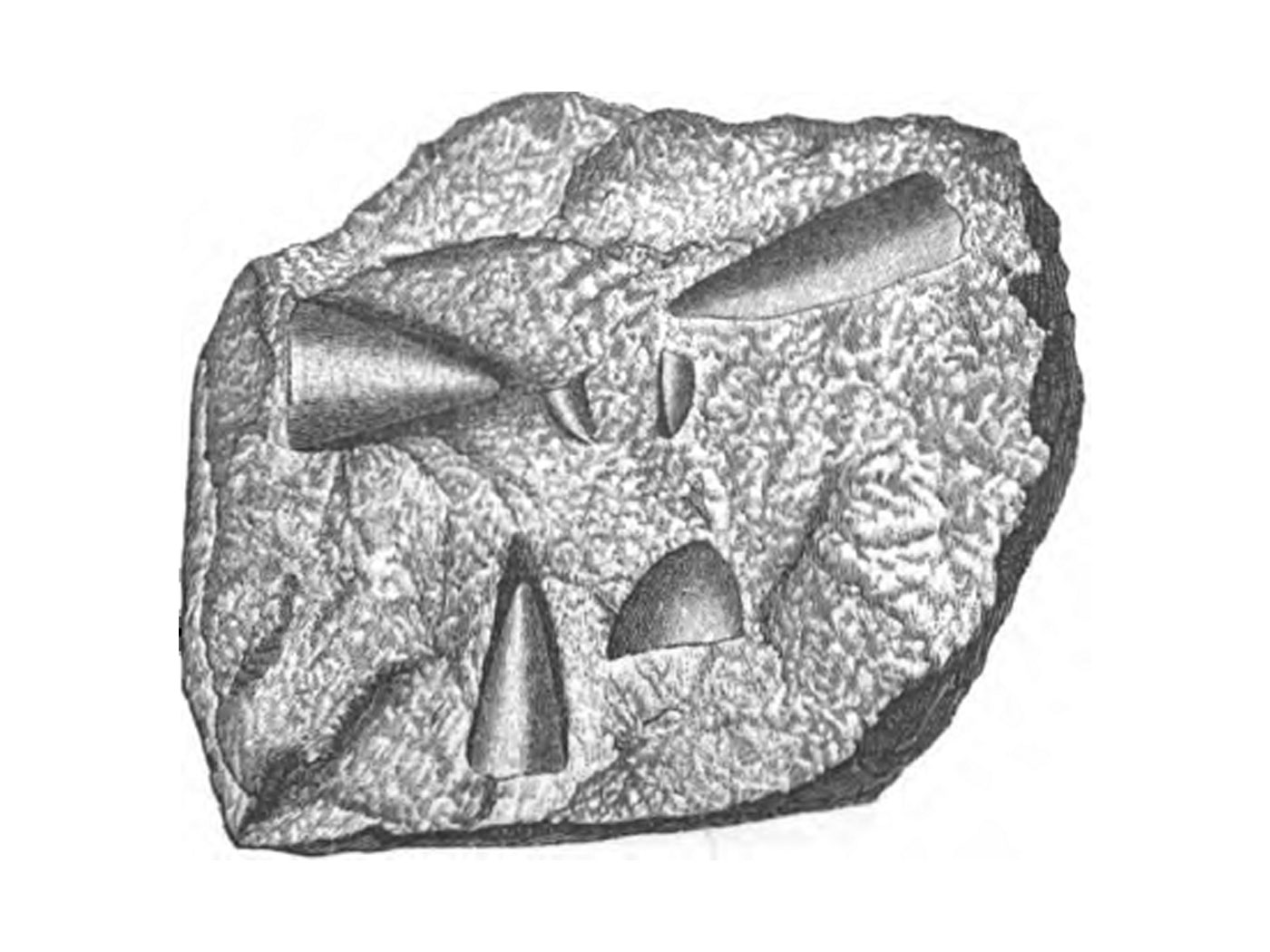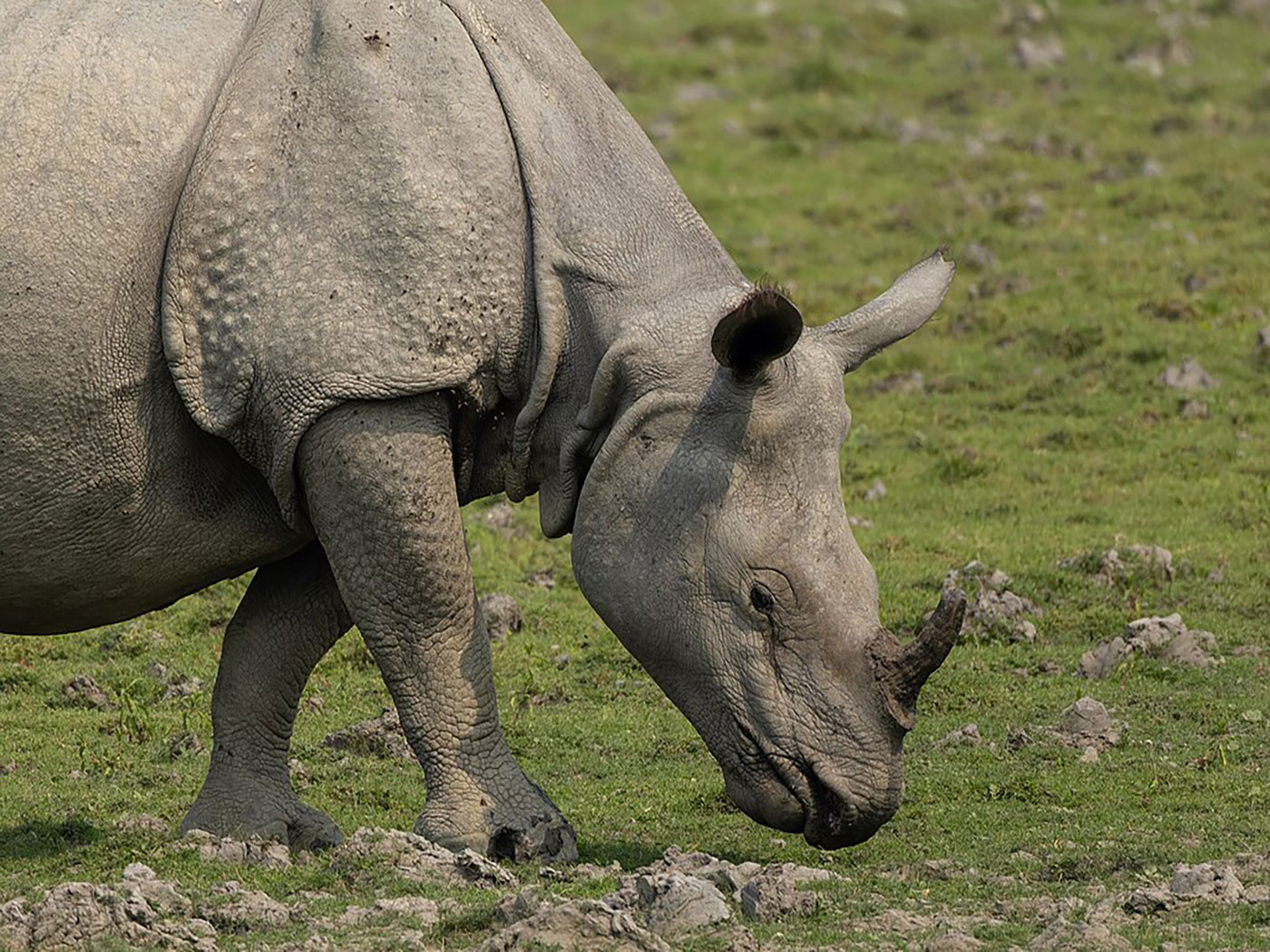Grocery shopping can be enlightening in many ways. While waiting to check out, a shopper can read why someone has a crush on their alien abductor, or loves their talking poodle’s poetry, or enjoys daily encounters with Elvis. Tabloid papers thrive on wild headlines. Some people find them believable, while others laugh. Interestingly, a report on several surveys found that compared to irreligious college students, evangelical Christians were far less likely to believe in superstitions such as ghosts, palm readers, and psychics.1 That’s likely one reason evangelicals generally avoid tabloid-style stories.
Tabloid journalism isn’t alone in supplying dubious or salacious stories. Consider headlines based on evolutionary psychology regarding why certain behaviors happen: “It’s evolution: Nature of prejudice, aggression different for men and women”; “Some STIs Are Beneficial, and May Have Boosted Evolutionary Promiscuity”; “There’s an Evolutionary Reason Guys Like Curves”; “Female animals look drab to avoid sexual harassment, study shows”; “How make-up makes men admire but other women jealous”; “Does Postpartum Depression Serve an Evolutionary Purpose?”; “Whether It’s a Peacock Or a Porsche, Men Like to Show Off, Study Finds”; “Lady Liaisons: Does Cheating Give Females an Evolutionary Advantage? A 17-year-long study upends the most common evolutionary explanation of female infidelity.”
Can these stories be taken seriously? Or are they another major evolutionary blunder that, in this case, should be laughed off just like tabloid-style headlines?
Evolutionary psychology explains human behavior as a legacy of preprogrammed adaptive actions that emerged from our alleged evolutionary struggle to survive. It applies evolutionary biology to daily living. However, does either field have scientific merit? The opinion amongst evolutionists is split. One study advocating for indoctrinating medical students with evolution claims that “evolutionary biology is a unifying principle that provides a framework for organizing medical knowledge from other basic sciences.”2
Yet, evolutionary authority Jerry Coyne disagrees. He says:
In science’s pecking order, evolutionary biology lurks somewhere near the bottom, far closer to phrenology than to physics. For evolutionary biology is a historical science, laden with history’s inevitable imponderables….The latest deadweight dragging us closer to phrenology is “evolutionary psychology,” or the science formerly known as sociobiology, which studies the evolutionary roots of human behavior.3
Determining who’s right requires some knowledge of evolutionary psychology. Does this field prompt the kind of vivid imaginative extrapolations that are aligned with Darwin’s look-imagine-see explanatory method?4 If yes, then evolutionary psychologists may be prone to embrace mystical explanations in which nature exercises agency over creatures to shape their behaviors as well as their physical forms.
Evolutionary Psychology Sees Behavior as Survival Adaptations
The belief that behaviors result from evolutionary adaptation is fundamental. Per Mary Jane West-Eberhard, “The use of ‘adaptation’ by evolutionary biologists” differs from other biologists. “To be considered an adaptation a trait must be shown to be a consequence of selection for that trait” in “what Darwin called ‘the struggle for existence.’”5
Thus, specific behaviors previously believed to be vital for survival now function in us more like instincts.
Evolutionary psychology rests on several key premises….The first premise states that the complexity of human behavior can only be understood by taking into account human evolutionary history and natural selection. Second, behavior depends on evolved psychological mechanisms. These…process specific information and generate as output specific behaviors….Third, evolved psychological mechanisms are functionally specialized to perform a specific task….Finally, the numerousness premise states that human brains consist of many specific evolved psychological mechanisms that work together to produce behavior.6
The study containing the above insight clarifies that though evolutionary psychologists “often frame hypotheses in terms of the costs and benefits to an organism of performing a particular behavior,” “these terms carry no moral or ethical meaning and are used only in terms of naturally selected biological functioning.”6
Evolutionary Psychology Projects Animal Behavior on Humans
Evolutionary psychologists definitely use Darwin’s practice of look-imagine-see methodology. Researchers observe similar animal and human behaviors, then study animal interrelationships to make their best guess about why their behaviors happen, and finally project that explanation onto humans.
This projection links animal actions with what is thought to be instinctive human behavior. One BBC story, “Why bullying is such a successful evolutionary strategy,” states: “It is not just people that bully the vulnerable. Many animals do it too, and in evolutionary terms it may even work.”7 This article notes bullying behavior amongst birds, fish, hyenas, and especially the primates. After observing this similarity, the search for an evolution-based motive starts.
[The chimp’s bullying actions] suggest that bullying your way to the top has a long history, and may even be innate….“Chimps are ‘natural bullies’ and I have seen it often,” says Richard Wrangham of Harvard University….In fact, [bullying] is often unprovoked, says Dario Maestripieri of the University of Chicago, Illinois. “Dominants attack subordinates out of the blue, for no apparent reason.” This unsolicited harassment may serve a useful purpose. Maestripieri argues that bullying helps dominant animals to intimidate their subordinates, and that this has clear evolutionary benefits. It ensures that the dominant individuals have better access to food and to the opposite sex. “The more a female is bullied by a particular male, the more that male gets to mate her. Sad but true,” says Wrangham.7
Finally, a projection to instinctive human behavior happens.
This seems to suggest a bleak conclusion. If so many creatures bully, perhaps bullying is innate in us, something we cannot escape....“Human bullying is both the product of tendencies inherited from our chimp-like ancestors, and of competitive social environments like those of chimps and rhesus monkeys,” says Maestripieri.7
If our behaviors spring from evolved psychological processing of specific information that reflexively generates specific behaviors, then what does this indicate about human volition? Only the boldest advocates of evolutionary psychology publicly state the logical implication—that we actually have no choice in how we act.
Free Will vs. Evolutionarily Inherited Compulsory Behavior
Evolutionist William Provine, the late Cornell professor and author of the essay “No Free Will,” astutely understood the clash of evolutionary ideas with God’s revelation-based behaviors. In a recap of his interview with Provine, one journalist wrote, “With the destruction of the argument for design, there is no going back to a world in which our ethics can be based on a revelation of what God demands of us.”8 He added:
Nor can we reasonably expect people to behave morally by exercising free will, because free will simply doesn’t exist. Genetics and environmental factors do not merely influence our moral decisions—they determine them….Free will, Provine argues, is not simply a myth. “It is a destructive myth, one of the meanest, nastiest, most divisive ideas we’ve developed in all our cultural history. We use it,” he says, “to blame people for their actions and to justify mistreating [i.e., punitively incarcerating] people.” 8
Thus, evolutionary psychologists suggest that even when destructive, a human’s unconscious reactions—not choices—are practically inevitable.
In her catalog of published evolutionary psychological theories, Denyse O’Leary sums up how they explain all—and even contradictory—behaviors “that are now assumed to be encoded in our genes through natural selection. Thus our brains enact programs whose true nature we do not understand. But the evolutionary psychologist does.”9 She elaborates how:
This encoded behaviour can be shopping, voting, or tipping at restaurants. It can also be: Why children don’t like vegetables (nothing to do with young ‘uns preference for sweet things); why hungry men prefer plump women (not just because they probably know where the kitchen is); why we have color vision (mainly to detect blushing); why we are sexually jealous (not fear of abandonment, but “sperm competition”); why toddlers are Neanderthals (not just immature); why we don’t stick to our goals (evolution gave us a kludge brain); why women prefer men with stubble (except for those who don’t); why gossip is good for you (despite wrecked relationships)…9
And on goes her intriguing litany of our presumed compulsory behaviors.
Uh-Oh…Evolutionary Psychologists Explain Rape
Evolutionists tolerate evolved psychological mechanisms that compel us to, say, shop for shoes. But some revolt when these mechanisms explain humans shopping for mates, or worse, of men shopping for women who aren’t on the market. In 2000, MIT Press published A Natural History of Rape: Biological Bases of Sexual Coercion.10 A furor arose over the way this book applied evolutionary psychology to rape.
One backlash was over people who seem to mitigate rape’s moral dimension by envisioning nature as beneficially selecting behaviors that bypass free will and simply “happen.” In response, the authors amended their book’s preface. They highlighted how their writings clearly stated that “there is no connection here between what is biological or naturally selected and what is morally right or wrong.”11
Their conclusion for rape itself remained divisive even in the amended preface.
We argue that a desire for sexual stimulation, not a desire to produce offspring, is a proximate cause of raping and is the common denominator across human rapes of all kinds. Men’s sexual ardor is, in ultimate terms, a product of past selection pressure that favored it because it increased sexual access to many females of reproductive age….Women are evolved to choose mates carefully….Rape is one of the many behaviors that result from this evolved difference in male and female sexuality.12
Other evolutionary psychologists agree that rape is a selected adaptation.
For rape to be produced by evolved psychological mechanisms, it must have recurrently generated reproductive benefits for ancestral rapists….There is evidence that rape may have increased the number of women with whom ancestral men copulated and, therefore, the reproductive success of rapist males.13
“And that is why we carry rape genes today. The family trees of prehistoric men lacking rape genes petered out,” reports science writer Sharon Begley. She lampoons evolution-based stories explaining men’s behavior and women’s looks. “Men attracted to young, curvaceous babes were fitter because such women were the most fertile; mating with dumpy, barren hags is not a good way to grow a big family tree.”14
Naturalists claim to love science, but they hate science when evolutionary models deliver undesirable conclusions. Applying evolution to rape wasn’t controversial, but concluding that rape happened “for sexual stimulation” was. This claim was taken to be anti-feminist per “‘gender feminism’: feminism that is based on inter-gender conflict, with virtually all that is male denounced as domineering, evil, untrustworthy, out-group, and enemy.”15 Gender feminists declare that male-over-female domination motivates rape, not sexual gratification. These evolutionary psychologists threatened feminism’s view, and they furthered the angst by adding, “That a woman’s manner of dress may affect her risk of rape is eminently reasonable in view of what is known about certain sexual adaptations of men.”15
Evolutionist Critics of Evolutionary Psychology Indict Themselves
Begley reports:
Over the years [evolutionary psychology] arguments have attracted legions of critics who thought the science was weak and the message (what philosopher David Buller of Northern Illinois University called “a get-out-of-jail-free card” for heinous behavior) pernicious. But the reaction to the rape book was of a whole different order. Biologist Joan Roughgarden of Stanford University called it “the latest ‘evolution made me do it’ excuse for criminal behavior from evolutionary psychologists.”16
“Weak science” criticisms center on non-testable claims that a maladaptive behavior today like rape was once long ago a useful adaptive behavior. But how does one know if a behavior is truly an adaptation or some non-adaptable trait that evolutionarily “rides along” with adaptable ones?
Coyne seized on this ambiguity. “In keeping with the traditions established early in the evolution of sociobiology, [the A Natural History of Rape: Biological Bases of Sexual Coercion book’s] evidence comes down to a series of untestable ‘just-so’ stories.”17 He added later:
The problem is that evolutionary psychology suffers from the scientific equivalent of megalomania. Most of its adherents are convinced that virtually every human action or feeling, including depression, homosexuality, religion, and consciousness, was put directly into our brains by natural selection….Unlike bones, behavior does not fossilize, and understanding its evolution often involves concocting stories that sound plausible but are hard to test.18
When it served him, however, Coyne made the same selectionist claim. “The theory of natural selection has a big job–the biggest in biology. Its task is to explain how every adaptation evolved…not just body form….Selection has to explain behaviors, both cooperative and antagonistic.”19 Coyne unwittingly accentuates how ambiguity and “just-so” stories epitomize evolution itself.
Fittingly, in practice “evolutionary psychology is empirically unwarranted and conceptually incoherent to such an extent that it is a matter of professional sociological concern why it has come to achieve such a degree of popularity,” concludes the evolutionist who penned “The Darwinian Cage.” He alludes to why evolutionists will contentedly live in their cage of imaginative tabloid-style stories. It’s not evolution but a compelling “commitment to naturalistic explanation….Since no one wishes to keep company with the creationists, the evolutionary psychological programme [sic] appears irresistible.”20
Biblical truth exposes the evolutionary psychologist’s expectation as futile and blame-shifting “evolution made me do it” stories as foolish. “The heart is deceitful above all things, and desperately wicked; who can know it? I, the LORD, search the heart, I test the mind, even to give every man according to his ways, according to the fruit of his doings” (Jeremiah 17:9-10).
References
- Hemingway, M. Z. Look Who’s Irrational Now. The Wall Street Journal. Posted on wsj.com September 19, 2008, accessed November 18, 2016.
- Nesse, R. M. et al. 2010. Making evolutionary biology a basic science for medicine. Proceedings of the National Academy of Sciences. 107 (suppl 1): 1800-1807.
- Coyne, J. A. Of Vice and Men—The Fairy Tales of Evolutionary Psychology. Printed in The New Republic April 3, 2000, reposted on business.highbeam.com, accessed November 11, 2016.
- Guliuzza, R. 2016. Major Evolutionary Blunders: Haeckel’s Embryos Born of Evolutionary Imagination. Acts & Facts. 45 (11): 16-18.
- West-Eberhard, M. J. 1992. Adaptation: Current Usages. In Keywords in Evolutionary Biology. E. F. Keller and E. A. Lloyd, eds. Cambridge, MA: Harvard University Press, 13.
- McKibbin, W. F. et al. 2008. Why Do Men Rape? An Evolutionary Psychological Perspective. Review of General Psychology. 12 (1): 86-97. Emphasis in original.
- Hogenboom, M. Why bullying is such a successful evolutionary strategy. BBC Earth. Posted on bbc.com August 23, 2016, accessed November 11, 2016.
- Liles, G. The Faith of an Atheist. MD. March 1994, 59-64.
- O’Leary, D. Dissecting the caveman theory of psychology. MercatorNet. Posted on mercatornet.com August 10, 2009, accessed November 12, 2016.
- Thornhill, R. and C. T. Palmer. 2000. A Natural History of Rape: Biological Bases of Sexual Coercion. Cambridge, MA: MIT Press.
- Thornhill, R. and C. T. Palmer. 2002. Rape and Evolution: A Reply to Our Critics. Psychology Evolution & Gender. 4 (3): 283-296.
- Ibid, emphasis added.
- McKibbin, Why Do Men Rape?, 88.
- Begley, S. Can We Blame Our Bad Behavior on Stone-Age Genes? Newsweek. Posted on newsweek.com June 19, 2009, accessed on November 12, 2016.
- Thornhill, Rape and Evolution, 12.
- Begley, Can We Blame Our Bad Behavior on Stone-Age Genes?
- Coyne, J. A. and A. Berry. 2000. Rape as an adaptation. Nature. 404 (6774): 121-122.
- Coyne, Of Vice and Men.
- Coyne, J. A. 2009. Why Evolution Is True. New York: Viking, 119. Emphasis in original.
- Hamilton, R. 2008. The Darwinian Cage: Evolutionary Psychology as Moral Science. Theory, Culture & Society. 25 (2): 105-125.
* Dr. Randy Guliuzza is ICR’s National Representative. He earned his M.D. from the University of Minnesota, his Master of Public Health from Harvard University, and served in the U.S. Air Force as 28th Bomb Wing Flight Surgeon and Chief of Aerospace Medicine. Dr. Guliuzza is also a registered Professional Engineer.



















